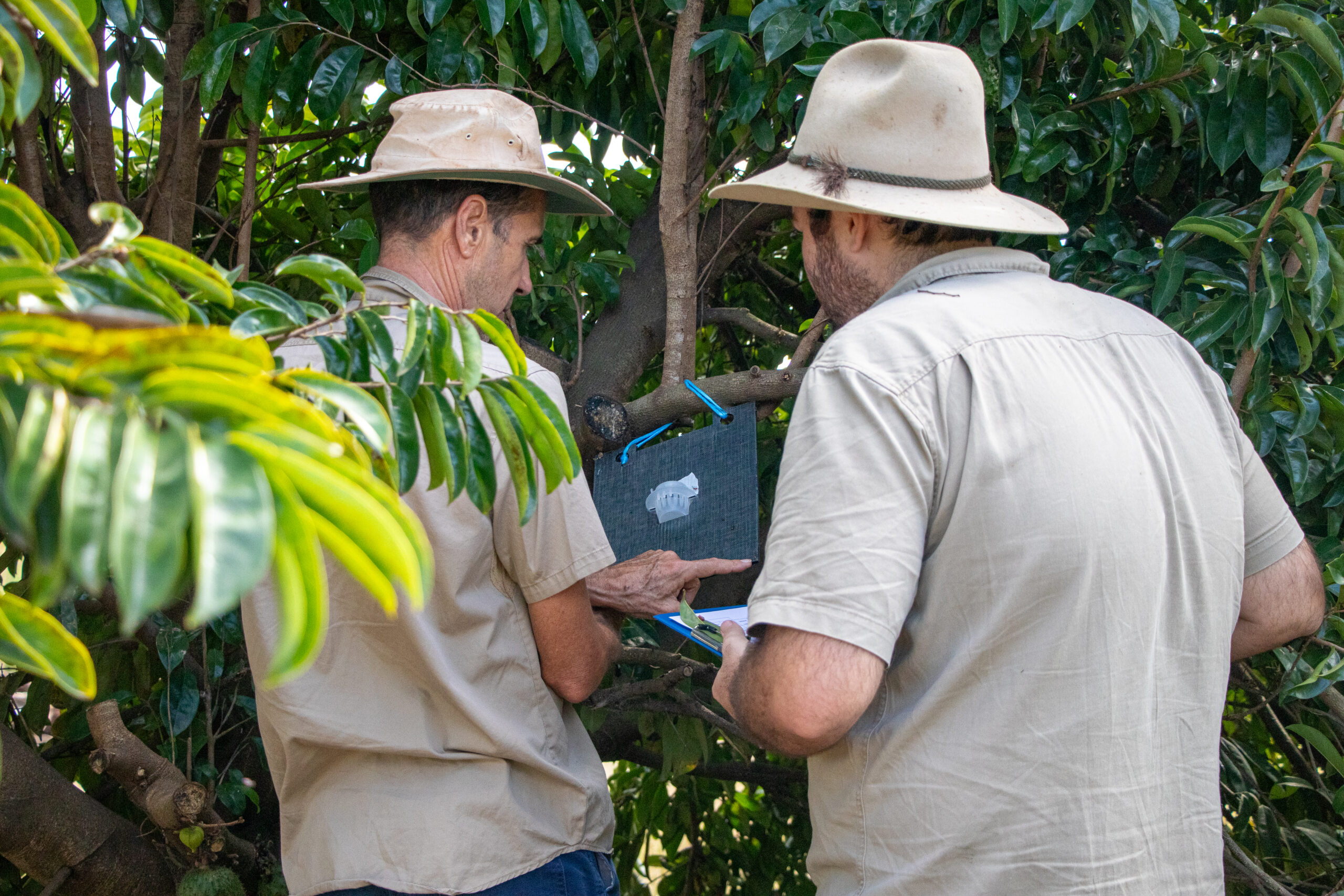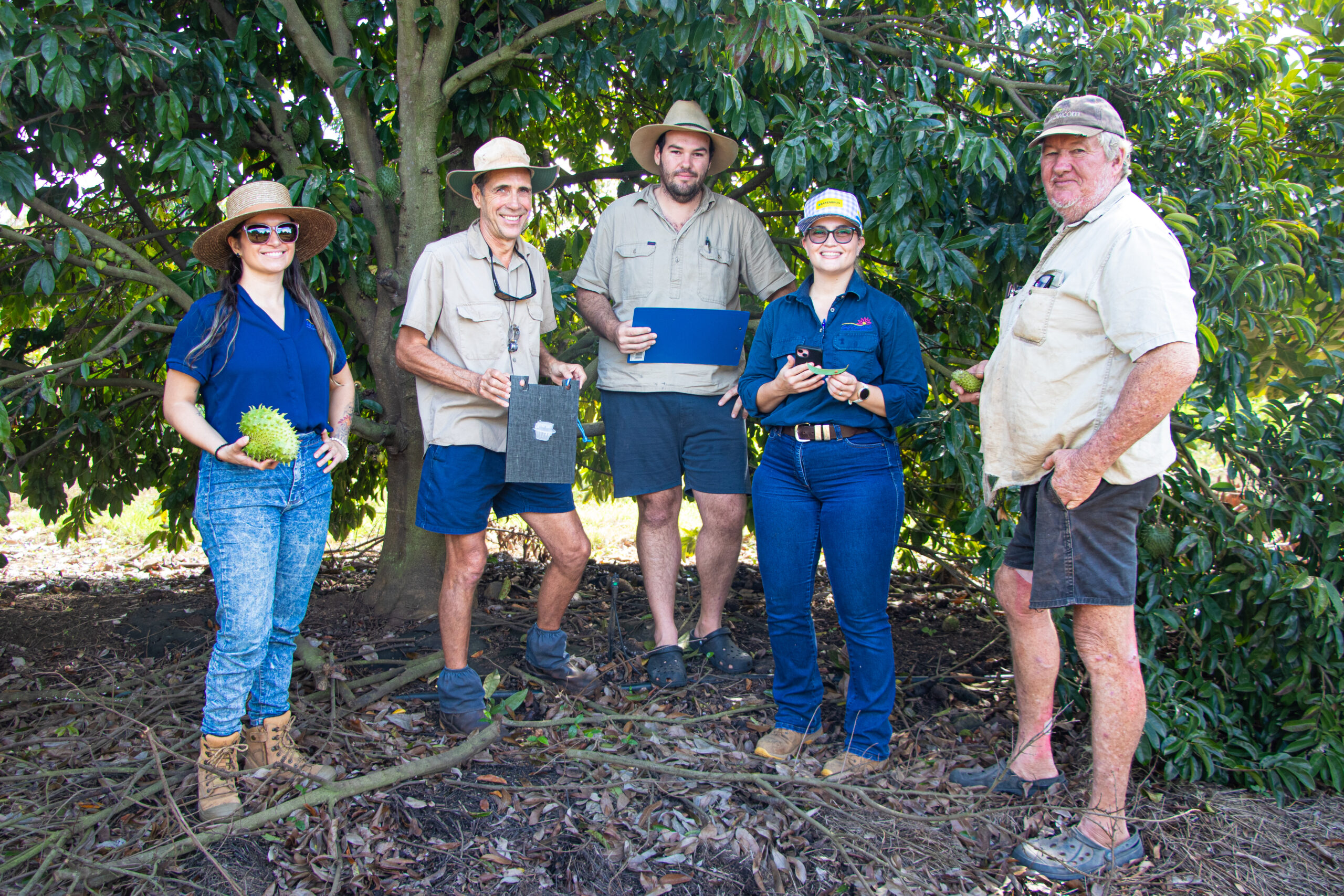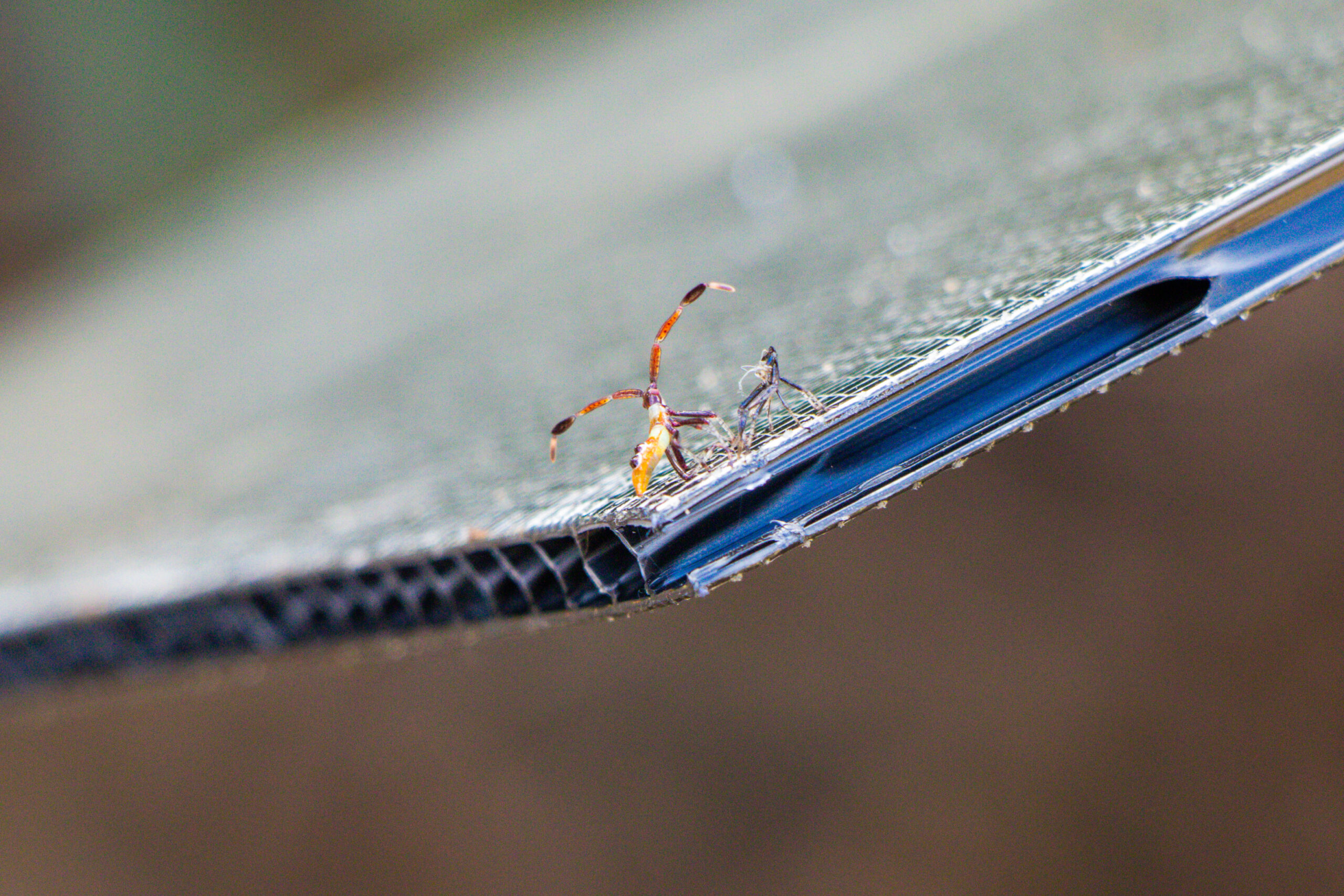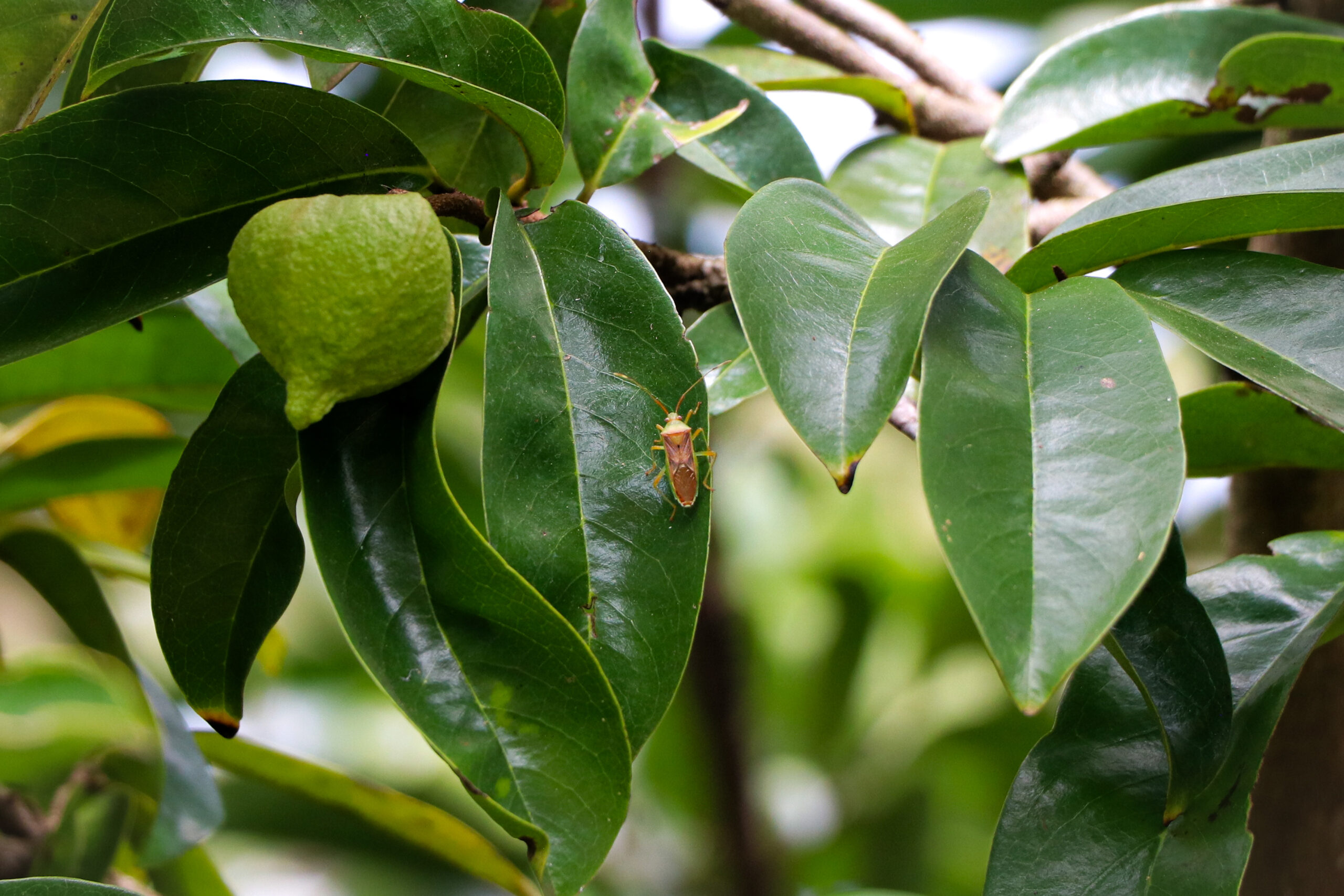Banana spotting bug trap trials are underway on Jennings Farm in Mareeba to explore alternative pest control methods and reduce reliance on chemicals.
Traps have been distributed densely across a graviola crop and will attract these specific bugs to a sticky panel using an aggregation pheromone.
Integrated pest management (IPM) consultant and pest scout Jeff Watson is optimistic about the significance of the traps, if found to be successful.
‘For the people on the Atherton Tablelands and Wet Tropics, I see it could have a massive impact,’ Mr Watson said.
‘It’s a kind of virtuous circle — we can reduce the spotting bugs, and at the same time our benefit is less need for insecticides to control these pests.’
New trap technology comes at an important time as producers across Far North Queensland seek to reduce their soil’s chemical residue in preparation for next year’s UNESCO Great Barrier Reef management review.
Trial site landholder and farmer John Jennings is mindful of the review, and hopes the traps will increase his property’s social responsibility while offering further co-benefits.
‘I feel it’s healthier for the environment and for the people eating the fruit — you get a better range of insects and aren’t affecting your pollinators,’ Mr Jennings said.
‘Anything we can do to show we’re trying to do the right thing, is probably going to be a good thing,’ he said.
‘And hopefully it works out cheaper!’
GSNRM Agriculture Project Officer Jessica Miranda is coordinating the trial as part of her broader work with regenerative and sustainable agriculture.
On August 19, Jennings Farm will host the next workshop in GSNRM’s Climate-Smart Agriculture series, with a focus on bug traps and non-chemical pest control.




